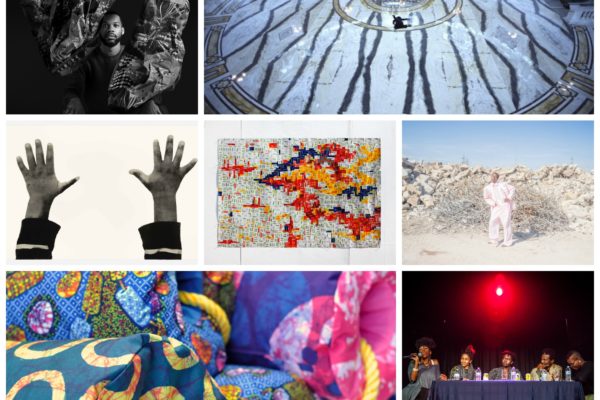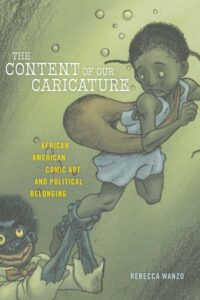Professor Wanzo’s research interests include African American literature and culture, critical race theory, feminist theory, the history of popular fiction in the United States, cultural studies, theories of affect, and graphic storytelling.

Rebecca Wanzo
Professor and Chair of the Department of Women, Gender, and Sexuality Studies
Contact Information
- Phone: 935-5102
- Email: rwanzo@wustl.edu
- Website: Website
Media Contact
In the media
Washington University professor tackles issues of race and gender via comics
Rebecca Wanzo, professor of women, gender and sexuality studies
Removing ‘blackface episodes’ is easy. Actually confronting racism in media isn’t
Rebecca Wanzo, associate professor of women, gender and sexuality studies
Removing ‘blackface episodes’ is easy. Actually confronting racism in media isn’t
I fear that removing episodes — some of which actually open discussions about racist representation — simply goes for an easy, non-substantive approach to harder questions about more dangerous racist logics and practices in Hollywood culture, writes Rebecca Wanzo.
This is pop culture’s moment of reckoning on matters of race
Rebecca Wanzo, associate professor of women, gender and sexuality studies
These images of women around Kavanaugh evoke a familiar alibi
Rebecca Wanzo, associate professor of women, gender and sexuality studies
The racist Serena cartoon is straight out of 1910
Rebecca Wanzo, associate professor of women, gender and sexuality studies
The new sex scene
Rebecca Wanzo, associate professor of women, gender and sexuality studies
Why the stakes are so high for the Black Panther
Rebecca Wanzo, associate professor of women, gender and sexuality studies
Stories
Interdisciplinary ‘Politics of Reproduction’ course to explore history, implications post-Roe v. Wade
The university is offering an interdisciplinary course this fall exploring what led to the Supreme Court ruling overturning Roe v. Wade and the implications going forward.
Rethinking Rape and Laughter: Michaela Coel’s I May Destroy You
I suspect that some people decided to delay watching Michaela Coel’s HBO/BBC One series I May Destroy You for fear that it would, well, destroy them. I did. Many of us choose to forego media that represents sexual violence.
Removing ‘blackface episodes’ is easy. Actually confronting racism in media isn’t
I fear that removing episodes — some of which actually open discussions about racist representation — simply goes for an easy, non-substantive approach to harder questions about more dangerous racist logics and practices in Hollywood culture.
With sequel, ‘Handmaid’s Tale’ saga turns on the light
I’m not sure I buy the path to liberation that Atwood plots here, but I’d like to believe. One of the biggest pleasures of the dystopian allegory is that we’d all like to believe that our national nightmares can end.
Wanzo on black visual mourning
Rebecca Wanzo, associate professor of women, gender and sexuality studies in Arts & Sciences, will examine the work of artist Sanford Biggers as part of a panel discussion titled “Re: Black Visual Mourning” at 6:30 p.m. Wednesday, Oct. 10, at the Contemporary Art Museum St. Louis.
‘Dwell in Other Futures’
Visions of the future shape how we see the present. On April 27 and 28, Washington University’s Divided City initiative will co-sponsor “Dwell in Other Futures,” a two-day event exploring how collisions of race, urbanism and futurism might spark fresh ideas about the city that is and the city that is to come.
Rebecca Wanzo: Bringing comics into academia
Rebecca Wanzo, associate professor of women, gender and sexuality studies in Arts & Sciences, discusses culture, cartooning and the Comics Studies Society, of which she is a founding board member.
Books
The Content of Our Caricature
African American Comic Art and Political Belonging
Traces the history of racial caricature and the ways that Black cartoonists have turned this visual grammar on its head. Revealing the long aesthetic tradition of African American cartoonists who have made use of racist caricature as a Black diasporic art practice, Rebecca Wanzo demonstrates how these artists have resisted histories of visual imperialism and […]





